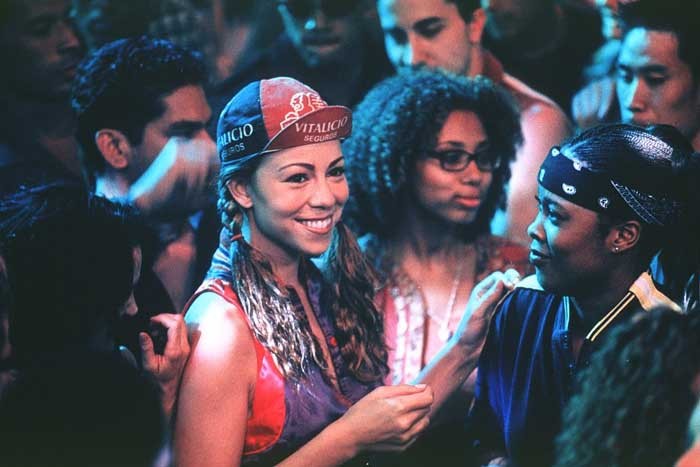
All that glitters certainly isn’t gold, as “Glitter” cinematographer Geoffrey Simpson knows all too well. During a recent interview, Simpson told IndieWire that the newfound cult fandom around Mariah Carey’s 2001 film debut is staggering, as “Glitter” is “one of the 10 worst movies.” The “Center Stage” and “Under the Tuscan Sun” director of photography looked back on the feature that was released September 21, 2001 — after its soundtrack came out on 9/11.
In the film, Carey stars as a young singer who overcomes an abusive childhood to reach stardom alongside a toxic boyfriend. “Glitter” was directed by Vondie Curtis-Hall and cleared $5.3 million at the global box office against a $22 million budget. Carey developed the story behind “Glitter” with “What’s Love Got to Do with It” screenwriter Kate Lanier and playwright Cheryl L. West. Padma Lakshmi, Eric Benét, Max Bessley, Terence Howard, and Da Brat also starred.
In November 2018, a Carey fan-led hashtag campaign called #JusticeforGlitter propelled the film’s soundtrack to No. 1 on the iTunes and Billboard soundtrack charts. “Oh, my God. Well, I had no idea that ‘Glitter’ had a resurgence or any interest,” cinematographer Simpson told IndieWire. “I remember when it was made, some of the reviews were scathing and one review said it was probably one of the 10 worst movies ever made. Well, it was a badge of honor.”
He added that while speaking with fellow “Glitter” crew members, “[They] said, ‘You know, it’s funny, I’ve had a good career but the only movie people ever ask me about is “Glitter.”‘ One of the 10 worst movies in the world has become kind of following.”
Lead star Carey told Movieline (via Vulture) in 2001 that she “wrote the treatment” for the film inspired by her own life. “It’s a story I’ve wanted to tell for a long time. We start with my character, Billie Frank, as a 9-year-old girl. Billie is sent to live at an orphanage because her mother is unstable. Billie grows up confused, becomes a backup singer for a girl who really can’t sing, and she’s pissed off because she knows she’s so much better,” Carey said. “She signs a bad deal, then meets a DJ who falls for her and makes her a star. But he has a very dark side.”
Per Vulture, Carey was “convinced” that cinematographer Simpson was “shooting me on my bad side on purpose,” leading, she claimed, in part to the box office flop and critical pan of the film. Due to Carey undergoing psychiatric treatment at the time of the film’s slated August 31 release, distributor 20th Century Fox pushed the movie back to September 21, 2001.















